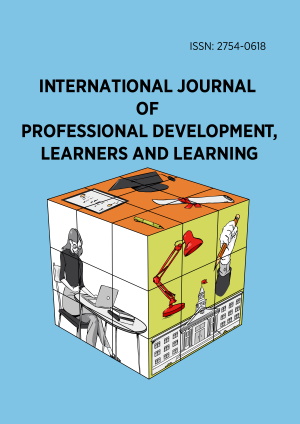Keyword: COVID-19
7 results found.
Research Article
International Journal of Professional Development, Learners and Learning, 7(1), January 2025, e2504, https://doi.org/10.30935/ijpdll/15693
Research Article
International Journal of Professional Development, Learners and Learning, 5(1), January 2023, ep2308, https://doi.org/10.30935/ijpdll/13062
Research Article
International Journal of Professional Development, Learners and Learning, 4(2), July 2022, ep2206, https://doi.org/10.30935/ijpdll/12075
Review Article
International Journal of Pedagogical Development and Lifelong Learning, 2(1), January 2021, ep2102, https://doi.org/10.30935/ijpdll/9294
Research Article
International Journal of Pedagogical Development and Lifelong Learning, 2(1), January 2021, ep2101, https://doi.org/10.30935/ijpdll/9290
Research Article
International Journal of Pedagogical Development and Lifelong Learning, 1(2), July 2020, ep2008, https://doi.org/10.30935/ijpdll/8439
Review
International Journal of Pedagogical Development and Lifelong Learning, 1(1), January 2020, ep2001, https://doi.org/10.30935/ijpdll/8311

 The articles published in this journal are licensed under the CC-BY Creative Commons Attribution International License.
The articles published in this journal are licensed under the CC-BY Creative Commons Attribution International License.